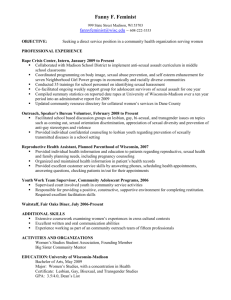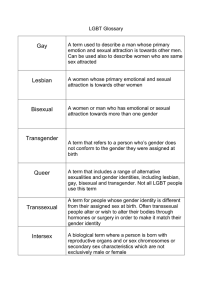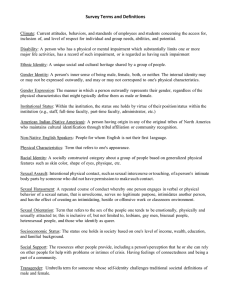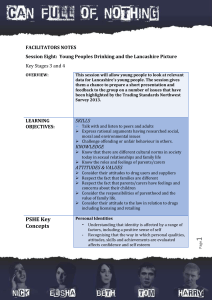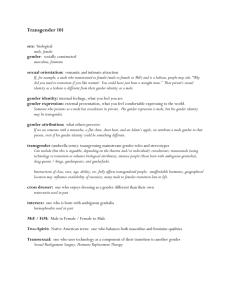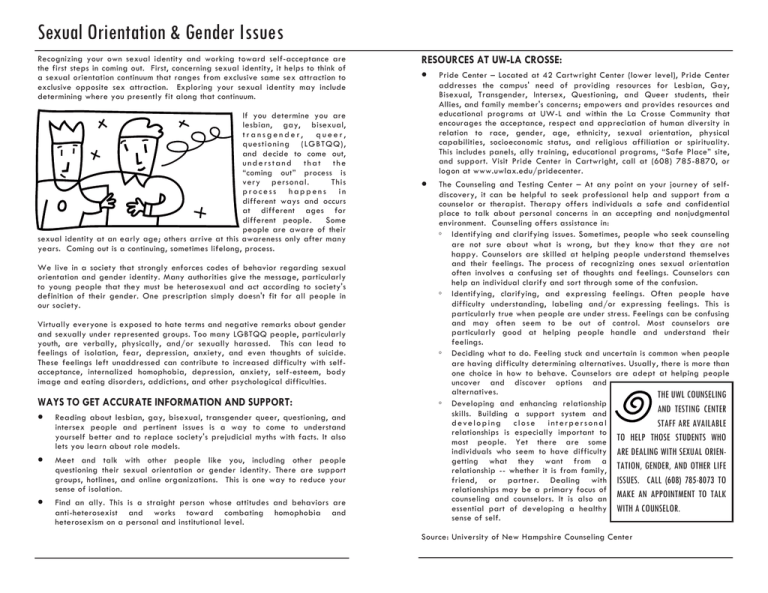
Sexual Orientation & Gender Issues
Recognizing your own sexual identity and working toward self-acceptance are
the first steps in coming out. First, concerning sexual identity, it helps to think of
a sexual orientation continuum that ranges from exclusive same sex attraction to
exclusive opposite sex attraction. Exploring your sexual identity may include
determining where you presently fit along that continuum.
If you determine you are
lesbian, gay, bisexual,
transgender,
queer,
questioning (LGBTQQ),
and decide to come out,
understand that the
“coming out” process is
very personal.
This
process happens in
different ways and occurs
at different ages for
different people.
Some
people are aware of their
sexual identity at an early age; others arrive at this awareness only after many
years. Coming out is a continuing, sometimes lifelong, process.
We live in a society that strongly enforces codes of behavior regarding sexual
orientation and gender identity. Many authorities give the message, particularly
to young people that they must be heterosexual and act according to society's
definition of their gender. One prescription simply doesn't fit for all people in
our society.
Virtually everyone is exposed to hate terms and negative remarks about gender
and sexually under represented groups. Too many LGBTQQ people, particularly
youth, are verbally, physically, and/or sexually harassed. This can lead to
feelings of isolation, fear, depression, anxiety, and even thoughts of suicide.
These feelings left unaddressed can contribute to increased difficulty with selfacceptance, internalized homophobia, depression, anxiety, self-esteem, body
image and eating disorders, addictions, and other psychological difficulties.
WAYS TO GET ACCURATE INFORMATION AND SUPPORT:
• Reading about lesbian, gay, bisexual, transgender queer, questioning,
and
intersex people and pertinent issues is a way to come to understand
yourself better and to replace society's prejudicial myths with facts. It also
lets you learn about role models.
•
Meet and talk with other people like you, including other people
questioning their sexual orientation or gender identity. There are support
groups, hotlines, and online organizations. This is one way to reduce your
sense of isolation.
•
Find an ally. This is a straight person whose attitudes and behaviors are
anti-heterosexist and works toward combating homophobia and
heterosexism on a personal and institutional level.
RESOURCES AT UW-LA CROSSE:
• Pride Center – Located at 42 Cartwright
Center (lower level), Pride Center
addresses the campus' need of providing resources for Lesbian, Gay,
Bisexual, Transgender, Intersex, Questioning, and Queer students, their
Allies, and family member's concerns; empowers and provides resources and
educational programs at UW-L and within the La Crosse Community that
encourages the acceptance, respect and appreciation of human diversity in
relation to race, gender, age, ethnicity, sexual orientation, physical
capabilities, socioeconomic status, and religious affiliation or spirituality.
This includes panels, ally training, educational programs, “Safe Place” site,
and support. Visit Pride Center in Cartwright, call at (608) 785-8870, or
logon at www.uwlax.edu/pridecenter.
•
The Counseling and Testing Center – At any point on your journey of selfdiscovery, it can be helpful to seek professional help and support from a
counselor or therapist. Therapy offers individuals a safe and confidential
place to talk about personal concerns in an accepting and nonjudgmental
environment. Counseling offers assistance in:
◦ Identifying and clarifying issues. Sometimes, people who seek counseling
are not sure about what is wrong, but they know that they are not
happy. Counselors are skilled at helping people understand themselves
and their feelings. The process of recognizing ones sexual orientation
often involves a confusing set of thoughts and feelings. Counselors can
help an individual clarify and sort through some of the confusion.
◦ Identifying, clarifying, and expressing feelings. Often people have
difficulty understanding, labeling and/or expressing feelings. This is
particularly true when people are under stress. Feelings can be confusing
and may often seem to be out of control. Most counselors are
particularly good at helping people handle and understand their
feelings.
◦ Deciding what to do. Feeling stuck and uncertain is common when people
are having difficulty determining alternatives. Usually, there is more than
one choice in how to behave. Counselors are adept at helping people
uncover and discover options and
alternatives.
THE UWL COUNSELING
◦ Developing and enhancing relationship
AND TESTING CENTER
skills. Building a support system and
developing close interpersonal
STAFF ARE AVAILABLE
relationships is especially important to
TO
HELP
THOSE
STUDENTS WHO
most people. Yet there are some
individuals who seem to have difficulty ARE DEALING WITH SEXUAL ORIENgetting what they want from a
relationship -- whether it is from family, TATION, GENDER, AND OTHER LIFE
friend, or partner. Dealing with ISSUES. CALL (608) 785-8073 TO
relationships may be a primary focus of
counseling and counselors. It is also an MAKE AN APPOINTMENT TO TALK
essential part of developing a healthy WITH A COUNSELOR.
sense of self.
Source: University of New Hampshire Counseling Center

